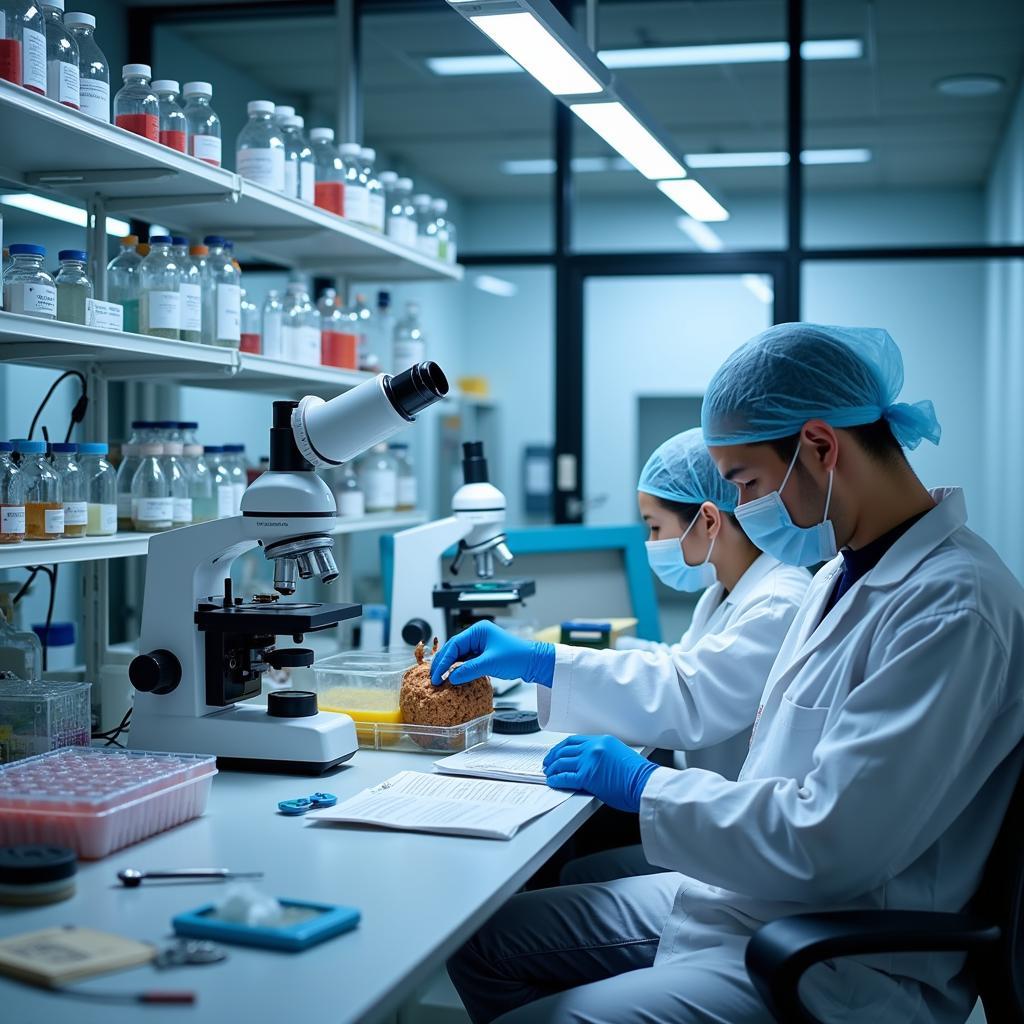Genetic modification and its ethical implications represent a significant topic in IELTS Writing Task 2, appearing regularly in recent years. This theme intersects with broader discussions about the ethical implications of genetic modification and frequently appears in academic modules. Let’s analyze a recent exam question and explore sample responses across different band scores.
Some people believe that genetic modification of animals for human benefit is morally wrong, while others think the advantages outweigh any ethical concerns. Discuss both views and give your own opinion.
Analysis of the Question
This question requires candidates to:
- Discuss arguments both for and against animal genetic modification
- Present a balanced perspective
- Provide a clear personal stance
- Support arguments with relevant examples
Band 8 Sample Essay
The debate surrounding the genetic modification of animals presents complex ethical considerations that warrant careful examination. While some argue against this practice on moral grounds, others emphasize its potential benefits for human welfare.
Those opposing animal genetic modification contend that it violates natural biological processes and raises serious ethical concerns about animal welfare. These critics argue that manipulating animal DNA could cause unnecessary suffering and compromise the integrity of species. Furthermore, there are concerns about unforeseen consequences that might emerge in future generations of modified animals.
On the other hand, proponents highlight the substantial benefits this technology offers. Genetic modification has enabled breakthrough medical research, including the development of life-saving drugs and treatments. For instance, scientists have successfully modified pigs to produce organs suitable for human transplants, potentially saving thousands of lives. Additionally, genetic modification can enhance livestock resistance to diseases and improve food security.
In my opinion, while ethical concerns must be carefully considered, the potential benefits of genetic modification outweigh the drawbacks when conducted responsibly. I believe establishing robust regulatory frameworks and ethical guidelines can help mitigate risks while allowing society to benefit from these scientific advances.
How to manage the risks of genetic engineering remains a crucial consideration in this field. Therefore, continuing research while maintaining strict ethical oversight represents the most balanced approach to this complex issue.

Band 6.5 Sample Essay
Nowadays, many people discuss whether it is right or wrong to change animals’ genes for human benefits. This essay will look at both sides of this argument.
Some people think genetic modification of animals is wrong. They say it is not natural and can hurt animals. For example, when scientists change animal genes, the animals might feel pain or get sick. Also, some religious people believe we shouldn’t change what nature created.
However, other people support genetic modification because it helps humans. Scientists can use modified animals to test new medicines. Also, farmers can make animals that grow bigger or produce more meat. This helps feed more people and makes food cheaper.
I think genetic modification can be good if we use it carefully. While we must think about animal welfare, the benefits for human health and food production are very important. But we need good rules to make sure animals don’t suffer too much.
Ethical concerns in human cloning research show us that we must be careful with genetic science. We should continue this research but always think about what is right and wrong.
Key Vocabulary
- genetic modification (n) /dʒəˈnetɪk ˌmɒdɪfɪˈkeɪʃən/ – the process of changing an organism’s DNA
- ethical implications (n) /ˈeθɪkəl ˌɪmplɪˈkeɪʃənz/ – moral consequences or considerations
- regulatory framework (n) /ˈreɡjʊləˌtɔri ˈfreɪmwɜːk/ – system of rules and guidelines
- breakthrough (n) /ˈbreɪkˌθruː/ – important discovery or development
- livestock (n) /ˈlaɪvˌstɒk/ – farm animals raised for food
- mitigation (n) /ˌmɪtɪˈɡeɪʃən/ – reduction of negative effects
- welfare (n) /ˈwelfeə/ – health and happiness of a person or animal
- integrity (n) /ɪnˈteɡrəti/ – wholeness or completeness
Practice Suggestions
Consider practicing with these related topics:
- The role of genetic modification in agriculture
- Ethical considerations in animal testing
- The future of genetic engineering in medicine
- Balancing scientific progress with moral responsibilities
Share your practice essays in the comments section for feedback and discussion with fellow learners.